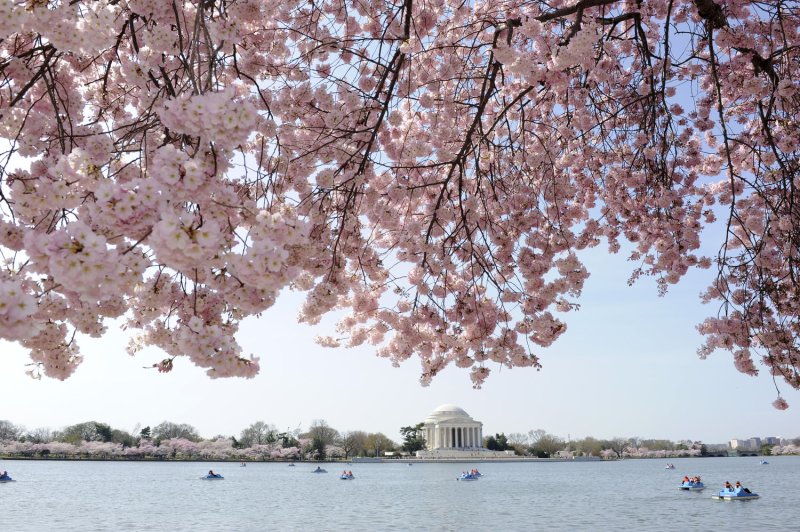Cherry blossoms are in full flower with the Jefferson Memorial in the background, at the Tidal Basin, April 9, 2013, in Washington, DC UPI/Mike Theiler |
License Photo
CHICAGO, April 29 (UPI) -- The itchy, watery eyes, congestion, post-nasal drip and sneezing of allergies begin earlier and end later, and some blame global warming, a U.S. expert says.
Dr. Anju Peters, an allergist at Northwestern Memorial Hospital and associate professor in medicine-allergy-immunology at Northwestern University Feinberg School of Medicine, said when allergy sufferers get pollen in the nose the immune system kicks into overdrive causing the body to release histamine and other substances that cause spring allergy symptoms.
"Seasonal allergies are affecting more Americans every year with some studies suggesting that climate change could be to blame," Peters said in a statement. "The pollen season is becoming longer and potentially more severe, making it increasingly important to properly treat allergies so they do not interfere with your quality of life."
There is no way to evade all allergies, but Peters suggested identifying triggers and avoiding severe symptoms by:
-- Making sure windows and doors are shut completely when pollen counts peak.
-- Dusting and vacuuming frequently.
-- Removing clothing worn outside when returning home.
-- Trying to wash all your clothes and bedding frequently.
-- Talking with a doctor to determine what type of pollen triggers your allergies. During the visit, the doctor may perform an allergy skin test or check your blood for potential allergens.
-- Making a calendar. Once the cause of allergies is identified, create a calendar of the most severe allergy weeks.















